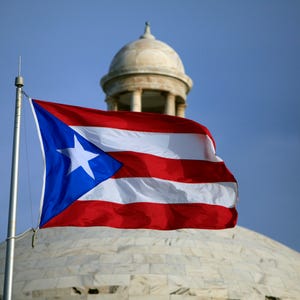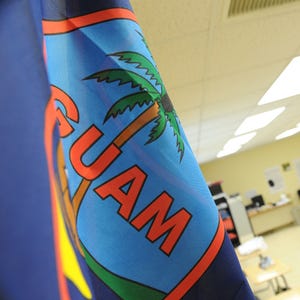The Pacific Daily News' recent article on the impossibility of independence for Guam given the amount of federal money the island receives was distorted and grossly incomplete in terms of representing Guam’s current economic situation, as well as possibilities for economic growth as an independent nation.
Too often, people say that Guam cannot afford to be independent, but the real truth of our situation is that Guam cannot afford to remain an unincorporated territory (or status quo), both politically and economically.
The most important point that was left out of the article was the simple fact that this money is far from guaranteed. As the Obama administration has recently argued, the relationship between the United States and its territories is one of owner and owned. This means that the owner (through acts of Congress) decides the nature of the relationship, determining what rights, if any, we have and how much money, if any, we will receive. There are always calls in Congress to reduce the funding of Guam and other territories. If any of those reductions were to take place, no amount of votes for statehood in a PDN poll would be able to prevent it.
For the PDN to report these figures without mention of the most basic nature of this funding is part of the overall way in which this island denies its colonial status. It contributes to the fear that so many have about changing our political status.
Instead of really looking at the types of funding Guam receives, the stipulations and regulations attached to this funding, and the subsequent dependency and stagnancy it creates, the article seemed to infer that GovGuam receives a great basket loaded with salape’ that we should just be grateful for and not analyze. In Chamorro there is a saying, “ti annok i yapapapa’,” which refers to how you should be cautious about accepting a basket if you cannot see what is at the bottom.
A closer look at the $550 million in federal funds Guam received reveals that close to half of that money went to two programs: food stamps and Medicaid. According to the article, $109 million was spent purchasing food that is overwhelmingly imported and many would argue is not very healthy for Pacific islander populations. This diet in large part has led to an epidemic of health problems on the island, for which the federal government then provides $117 million dollars to help people receive health care in an overly expensive system modeled after the United States.
Imagine what it would be like if even a fraction of that money was spent instead on supporting local agriculture and decreasing our dependency on imports and processed foods. Although this money comes in, it does not necessarily mean that it can be used in ways that align with our specific needs as a community.
Rather than scaring people into complacency and dependency, the PDN and the local officials and “experts” interviewed on such topics should facilitate a more critical discussion about Guam’s relationship with the U.S. and whether or not it hinders or advances our island’s economic growth and possibilities. While federal money helps to improve lives in some ways, it also causes harm in other ways, by keeping us ensnared in unsustainable ways of living.
The community regularly criticizes how Guam has become a welfare state heavily reliant on food stamps and Medicaid. Yet in this discussion on Guam’s political future, instead of encouraging greater possibilities for the island, the recent article implied that if Guam cannot afford to fund these programs as the U.S. does, then we should just stay as we are.
But there are many ways in which Guam could grow its economy to make up this shortfall, or simply reorganize its government and economy in order to replace these programs. In addition, several independent nations that host U.S. military bases receive far more than the $550 million the PDN reported Guam received in federal funds. Independent countries that are deemed to be strategically important to the United States and host a significant amount of bases, sometimes receive more than $1 billion in general and military aid annually.
Many continue to ask why status quo is not an option in choosing Guam’s future political status. Status quo, even with its millions of dollars in federal funding, keeps Guam stagnant as a colony rather than propelling the island and our people into a greater political and economic future determined by us. In order to truly make this decision, however, Guam needs responsible media coverage on this matter, and information that is not based on assumptions, but rather solid research and evidence.
Michael Lujan Bevacqua, Ph.D., and Victoria-Lola Leon Guerrero, MFA are co-chairs of the Independence for Guam Task Force.




No comments:
Post a Comment